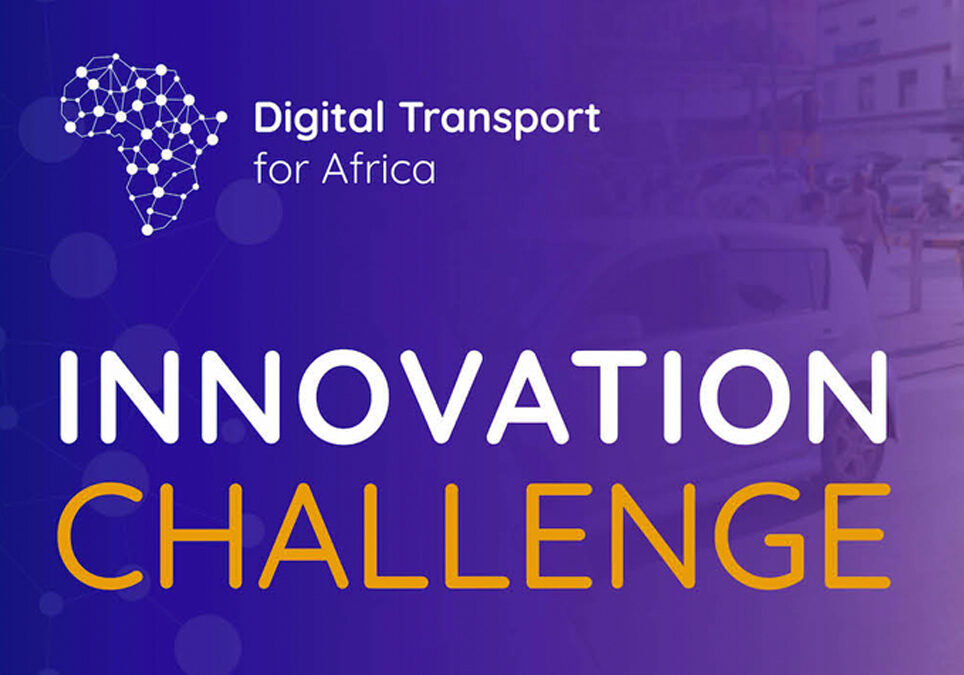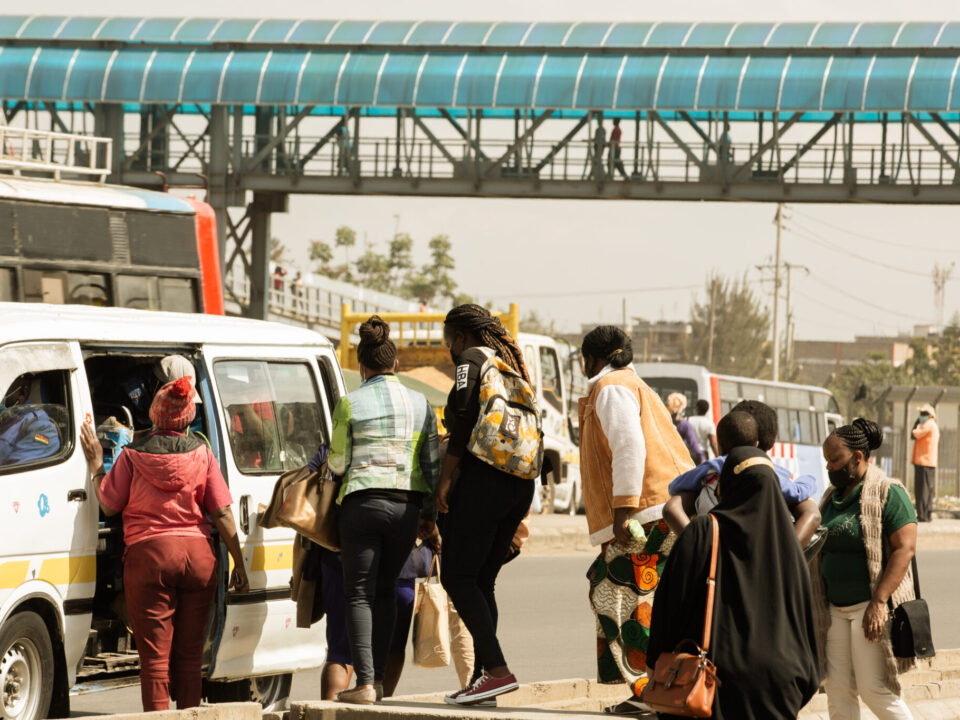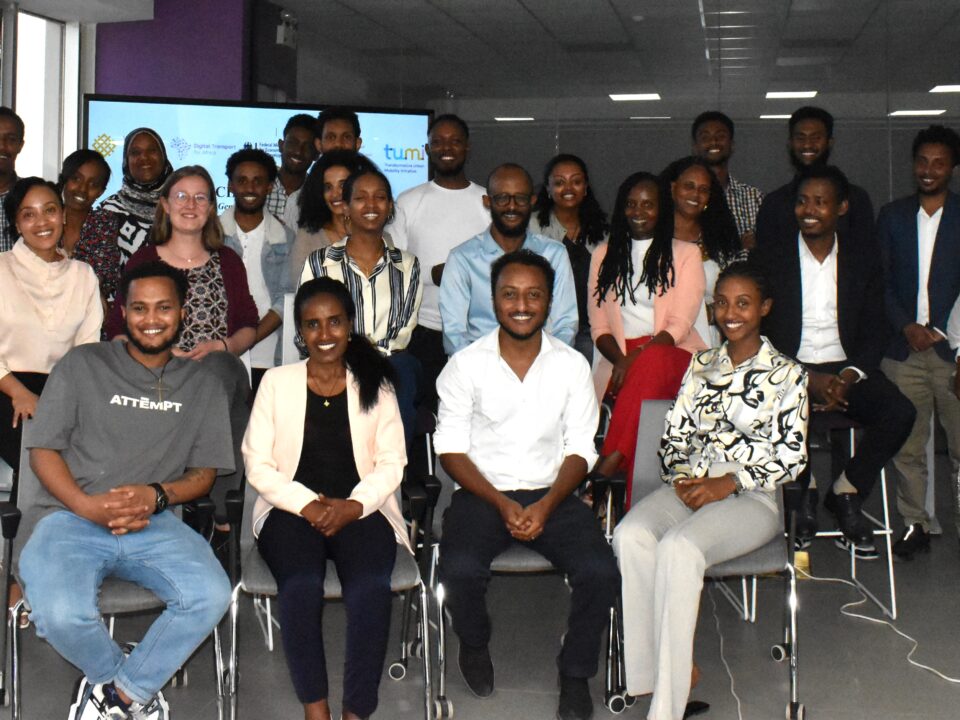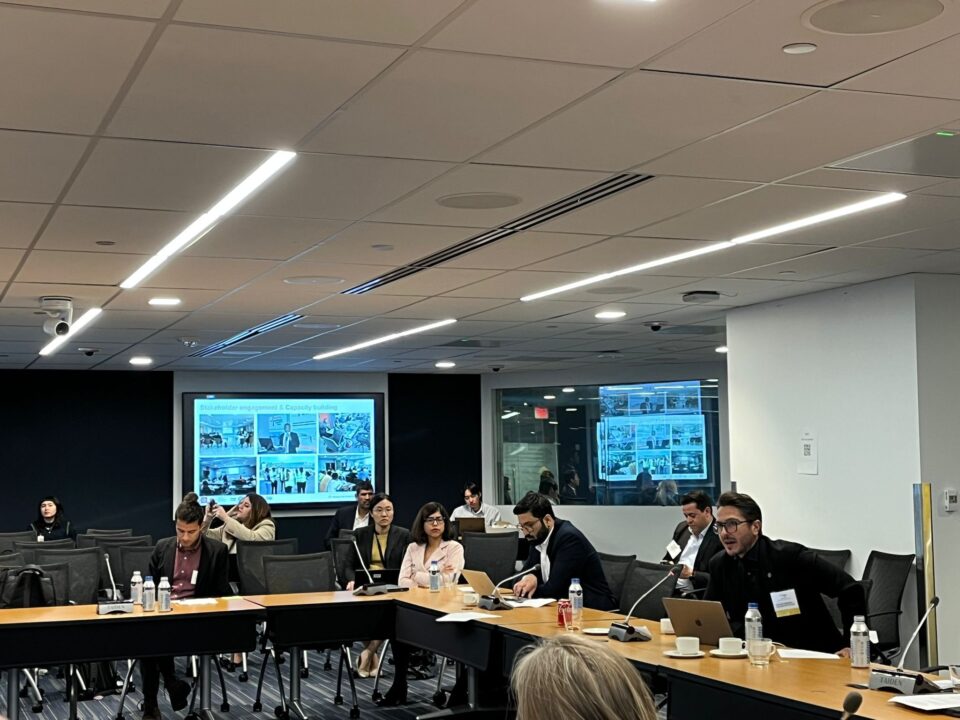
DT4A Innovation Challenge Updates: eWarren
21 décembre 2023
DT4A Innovation Challenge Updates: Testimonials from Cities
21 décembre 2023DT4A launched the DT4A Innovation Challenge in December 2021 to spotlight and award innovative urban mobility mapping initiatives. The first four winners of the DT4A Innovation Challenge were chosen in June 2022 from more than 100 submissions. AddisMap (Ethiopia), Ewarren (Côte d’Ivoire) and GoMetro (South Africa) are now in the midst of a 12-month implementation period and telling their stories of impact across Africa.
Explore the remarkable journeys of the DT4A Innovation Challenge winners as they share their firsthand experiences, insights, and achievements in this exclusive Q&A interview. Gain valuable insights into the implementation and impact of their innovative ideas, including the challenges they faced and the remarkable outcomes they achieved. Additionally, hear from transport officials representing cities that have directly benefited from these innovations, such as Abidjan and Addis Ababa. Learn from their expertise and discover the transformative potential of their groundbreaking solutions.
Explore the remarkable journeys of the DT4A Innovation Challenge winners as they share their firsthand experiences, insights, and achievements in this exclusive Q&A interview. Gain valuable insights into the implementation and impact of their innovative ideas, including the challenges they faced and the remarkable outcomes they achieved. Additionally, hear from transport officials representing cities that have directly benefited from these innovations, such as Abidjan and Addis Ababa. Learn from their expertise and discover the transformative potential of their groundbreaking solutions.
GoMetro, Stellenbosch, South Africa

Rudi Kriel, Transport Economist, GoMetro
What motivated GoMetro’s participation in the DT4A Innovation Challenge 2021, and how does your innovation specifically address key challenges in African urban transportation?
GoMetro’s motivation for participating in the DT4A Innovation Challenge 2021 was driven by the pressing challenges faced by the minibus taxi (MBT) industry in South Africa and the broader urban transportation sector in Africa to find decarbonization opportunities for the informal sector. The key challenges in the GoMetro project that our innovation aimed to address was:
- Lack of Reliable Data: The minibus taxi industry lacked accurate and comprehensive data, making it difficult to assess the feasibility of transitioning to electric vehicles (EVs) and implement sustainable solutions.
- Environmental Concerns: The industry’s reliance on fossil fuels contributed to high levels of carbon emissions, which is detrimental to the environment and public health. However, there are no vehicle models available for the electrification of this sector yet, and so there is no operating data on what operating criteria an EV MBT would need to fulfil
- Lack of Government Intervention and Incentives: Government support and incentives for transitioning to EVs were limited, hindering progress toward a more sustainable transportation system.
Could you share the main challenges encountered during the implementation of your initiative? How did you overcome these challenges, and what valuable insights or lessons did you gain from these experiences?
Unwillingness of MBT Operators to Participate until they understood the project better: Some MBT operators were initially hesitant to participate in data collection due to concerns that GoMetro might share data with regulators that could result in penalties for illegal operations. To overcome this challenge, GoMetro employed the following strategies:
- Effective Communication: GoMetro engaged in open and transparent communication with MBT operators, explaining the purpose of data collection and assuring them that the data would not be used against them. Building trust and highlighting the importance of their involvement in shaping a greener future have been key to gaining the local operators’ cooperation.
- Coordinating Onboard Diagnostic Installation and Uninstallation: Installing and removing diagnostic devices from MBTs posed logistical challenges and had a risk to disrupt MBT operations. GoMetro worked closely with MBT operators to schedule the installation and timely retrieval of diagnostic devices at times that would minimize disruption to their operations. Coordination and planning were essential to ensure a smooth process.
Our experience highlights the complexities of working within the informal transport sector and the importance of flexibility and persistence in data collection initiatives.
Collaboration with government institutions and stakeholders plays a crucial role in implementing projects. What has been the most interesting aspect of working with these entities on your project, and how has their collaboration contributed to its success?
Seeing government entities recognize the importance of transitioning to electric minibuses and taking steps to facilitate this transition are a pivotal moment. Partnering with government institutions enhanced the credibility and legitimacy of the project. It also helped build trust within the community and among stakeholders. Further, Government agencies possess valuable data and insights relevant to the project.
Has your project achieved its intended goals? Reflecting on the implementation process, is there anything you would have done differently or any additional components you would include if given the opportunity to start again?
The project has highlighted the power of reliable data in informing policy decisions and sustainable urban transportation planning. Given the incredible success of the initial project, there are opportunities to scale up the transition to e-MBTs in other regions of South Africa or even expand the initiative to neighbouring countries facing similar transportation challenges. Building on the project’s success, advocacy for supportive government policies, incentives, and regulations for electric vehicle adoption are even more effective, helping accelerate the transition further. Continued and expanded engagement with communities, passengers, and stakeholders could foster even greater acceptance and support for e-MBTs, solidifying their role as a sustainable transportation option.
Looking ahead, what are your plans for the long-term sustainability of your project? Do you have any strategies to scale it to other cities or regions?
With a proven track record of success, the project is now working to attract more partners and funding sources to profile and develop more sites, enabling the first 2 hubs to go live next year.
